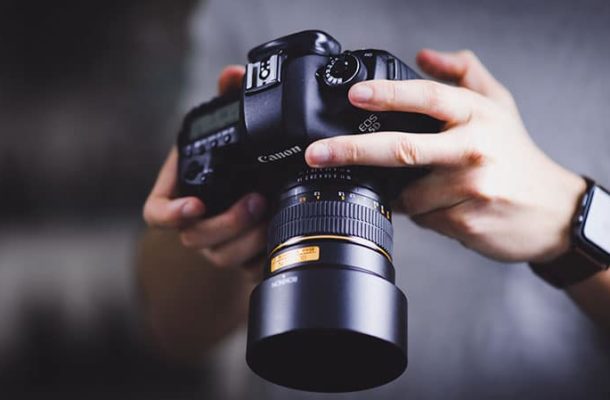Capturing stars in the night sky with your camera can be an amazing experience, but it can also seem like a daunting task if you don’t know what you’re doing.
Luckily, there are some simple tips and techniques you can employ to ensure you get great star photos every time.
In this article, landscape photographer Thomas Baskind shares a few tips that will help you capture stunning photos of stars from your own backyard.
Get Away from Light Pollution
Are you looking to capture stunning photos of the night sky from your own backyard? One of the most important tips is to get away from excess light pollution.
Light pollution can interfere with your nighttime photography and wash out stars and other celestial objects in the sky.
To ensure that you get the clearest images possible, try to find a spot outside your home that is as far away as possible from sources of light pollution such as street lights, billboards, or even your own home lighting. You may need to drive a bit further than you would like, but this is necessary for the best results.
Use a Tripod
Using a tripod is essential for capturing stunning night sky photos from your own backyard. A tripod allows you to take steady, crisp images without any camera shake. Not only does this make it easier to capture stars in the sky, but it also helps to create beautiful star trails.
With a tripod, you can set up your camera and experiment with different exposure lengths, as well as capture multiple exposures for combining later.
When setting up your tripod, make sure it’s sturdy and level. You should also check that the head of the tripod is securely tightened so that it won’t move or shake during long exposures. For extra stability, try adding weights to the tripod legs.
Set Your Camera to Manual Mode
When photographing stars in your own backyard, Thomas Baskind recommends that your camera is set to manual mode. This will allow you to adjust the exposure settings to best capture the starlight. To get started, select the M or Manual mode on your camera dial.
Once you’ve selected the Manual mode, you’ll need to set the shutter speed, aperture, and ISO for your photo. The shutter speed will determine how long your camera will expose the sky for and should be set at 15 seconds or more.
The aperture should be set to a wide setting (low f-stop number) to allow more light into the camera and the ISO should be set low to avoid graininess in your image.
Finally, turn off any image stabilization or autofocus that may be active on your camera as they can cause blurriness in your photos. Once all of your settings are set, you’re ready to take beautiful photos of the stars in your backyard!
Use a Wide-Angle Lens
In order to get the most out of your star photography, it is important to use the right lens. The best lens for star photography is usually a wide-angle lens. A wide-angle lens allows you to capture a wider area of the night sky, so you can get more stars in one shot.
To make sure you capture the most detail, try to find a lens with at least an aperture of f/2.8 or wider.
Additionally, when shooting stars with a wide-angle lens, it is important to keep your camera’s ISO as low as possible. This will help reduce noise in your photos and ensure that the stars appear crisp and clear.
Check Out Thomas Baskind Nature and Landscape Photos
If you are looking for inspiration to take the best night sky photos from your backyard, check out Thomas Baskind’s work on his website.


Comments